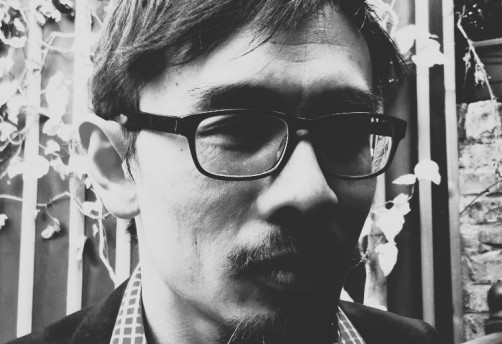Kerry Yong, Trustee of Sarx, tells his story of adopting a peaceable lifestyle.
Even though I grew up in a family that wasn’t quite typically Chinese (we emigrated to Australia), you cannot help having an enthusiastic attitude to food – something to be enjoyed, with family and friends, should always be over-catered by a factor of three, should require at least two processes of cooking, preferably with vivid sound effects and spectacular visual display.
My parents weren’t lavish in buying expensive food, but they did always try to provide plenty of it – volume and variety. Even when I visit them new, the kitchen is never empty.
I suppose I started to question my eating habits after realising that humans are using the world’s resources at a faster rate than it can supply them for us. If everyone on earth consumed its resources at the level the most affluent nations in the west were, we would need six worlds to sustain us – clearly untenable. This started my interest in ethical living and trying to put it into practice.
I started first with reducing my meat consumption – I tried being, what you might call, a Feastarian, treating meat as a treat and allowing myself to eat meat around only half the days of the week. I knew that if this was done by instinct or memory however, that I wouldn’t really be able to keep track of my meat and veggie days, so I enlisted the help of the Christian calendar, allowing myself to have meat only on Feast days. (It should be added that Feastarianism isn’t a religious movement. Also, there are quite a number of Saints and Holy days celebrated by Christians, which was a bit of a surprise.)
I feel that the Christian faith calls us to live ethically and to live more simply. And working as a musician, saving a bob or two is always welcome. But reducing meat eating was challenges at points – one initial observation is that today, meals are generally built around meat as a centrepiece and everything else as accompaniment. However, acquiring part-time vegetarianism made me rediscover and appreciate the variety of veg there is and reclaim them as adequate food in their own right.
Probably the year after, I decided to try being vegetarian for Lent. For me, fortunately this next transition wasn’t too difficult (although I do get hungry quite often even though I eat quite a lot!) It was a useful time to look further into the claims on the world’s resources meat production has on land, water, fuel, production of food for livestock, economic effects on poorer nations, and also standards of welfare for animals. The land, water and plant food used by the meat industry could be put towards feeding people much better – the argument that giving more of the world more meat simply doesn’t stand up.
This also led to the question – was it right to be farming animals, in the same way we farm plants, to the sheer scale that we do with so little care for them? Animals suffer in a way that plants don’t. I’m not sentimental about animals – I’ve never been that fond of animals as pets or fascinated by them from a nature-loving perspective. (I have thoroughly urban sensibilities). But they do have a dignity, even if short of humanity, that ought to be respected. They were not created originally for the sole purpose of being eaten but to be nurtured and named – in a similar way to the way that God cared for and named man Adam and woman Eve.
There are also other theological motivations – the killing of animals as a sacrifice, and as a substitute for human death as a punishment for sin, is now done away with. Jesus’s death, as the sacrificial lamb, has finished the requirement of animal slaughter for the sin of the world. Both should be viewed as abhorrent. And Christ has given us a new sacrament – vegetarian sustenance – bread taking place of his flesh, and wine taking place of his blood. There is a divine reversal and substitution.
I am still in the process of working through whether I’m prepared to give up on all animal products – I love cheese, butter and cream so veganism would come at a high cost. I’m also aware that it will come at a great cost (and still no absolute certainty) to commit only to purchasing by-products of animals that have not suffered primarily for the product in question. So it isn’t an agenda I have sorted and accomplished.
I doubt my boycott of meat-eating has made a major dent on the meat industry, although I know that if more of us considered it, it would change demand and have an impact on meat production. But in bigger-picture terms, I think of it more as part of a larger quiet protest. It’s about saying I don’t have to give in to all these desires of greed, whether they come from myself or from social or advertising pressure and that it’s possible to reform our appetites, live simply in an affluent society and enjoy different kinds of feast and contentment.



